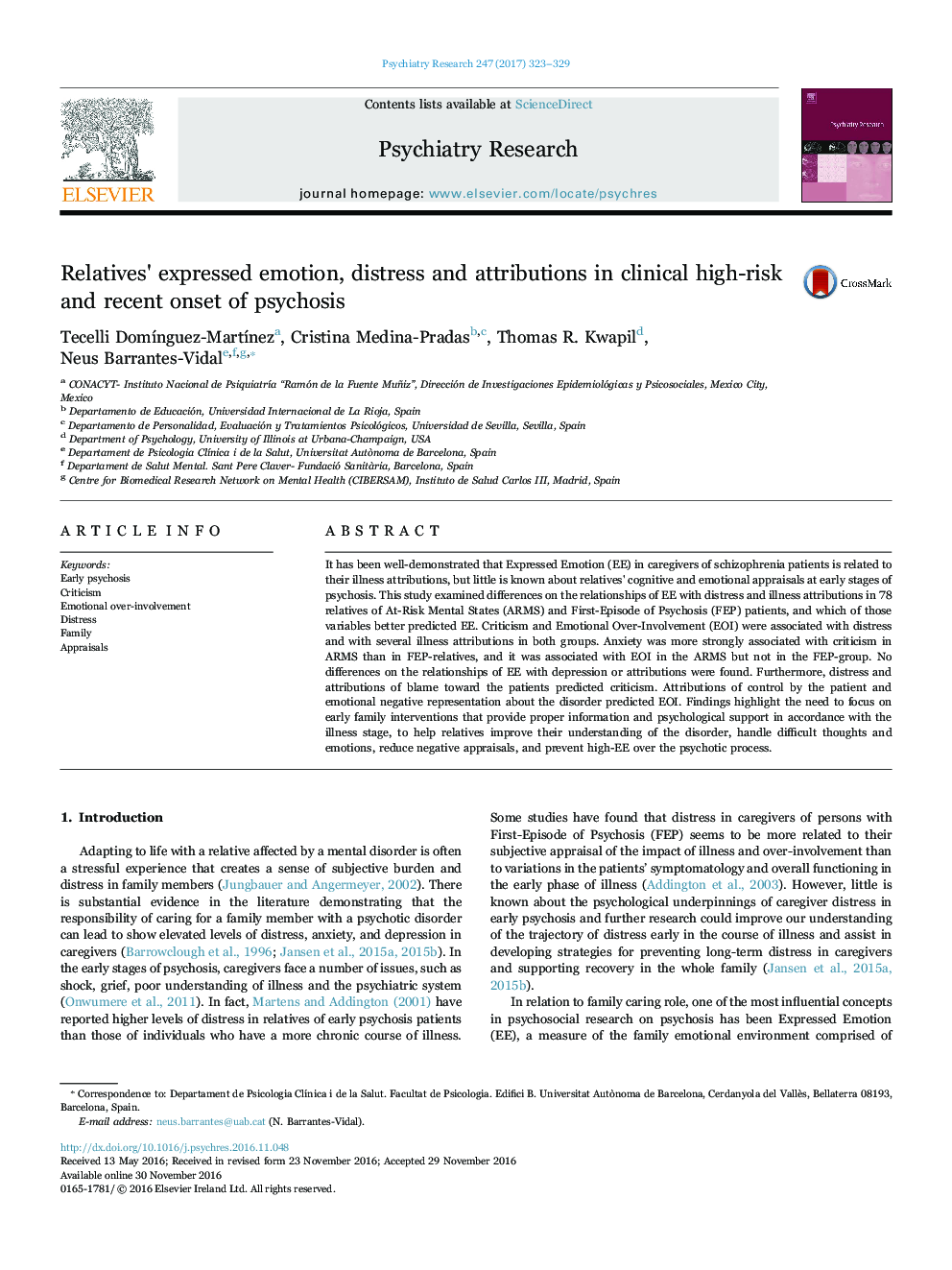| Article ID | Journal | Published Year | Pages | File Type |
|---|---|---|---|---|
| 4933676 | Psychiatry Research | 2017 | 7 Pages |
Abstract
It has been well-demonstrated that Expressed Emotion (EE) in caregivers of schizophrenia patients is related to their illness attributions, but little is known about relatives' cognitive and emotional appraisals at early stages of psychosis. This study examined differences on the relationships of EE with distress and illness attributions in 78 relatives of At-Risk Mental States (ARMS) and First-Episode of Psychosis (FEP) patients, and which of those variables better predicted EE. Criticism and Emotional Over-Involvement (EOI) were associated with distress and with several illness attributions in both groups. Anxiety was more strongly associated with criticism in ARMS than in FEP-relatives, and it was associated with EOI in the ARMS but not in the FEP-group. No differences on the relationships of EE with depression or attributions were found. Furthermore, distress and attributions of blame toward the patients predicted criticism. Attributions of control by the patient and emotional negative representation about the disorder predicted EOI. Findings highlight the need to focus on early family interventions that provide proper information and psychological support in accordance with the illness stage, to help relatives improve their understanding of the disorder, handle difficult thoughts and emotions, reduce negative appraisals, and prevent high-EE over the psychotic process.
Related Topics
Life Sciences
Neuroscience
Biological Psychiatry
Authors
Tecelli DomÃnguez-MartÃnez, Cristina Medina-Pradas, Thomas R. Kwapil, Neus Barrantes-Vidal,
